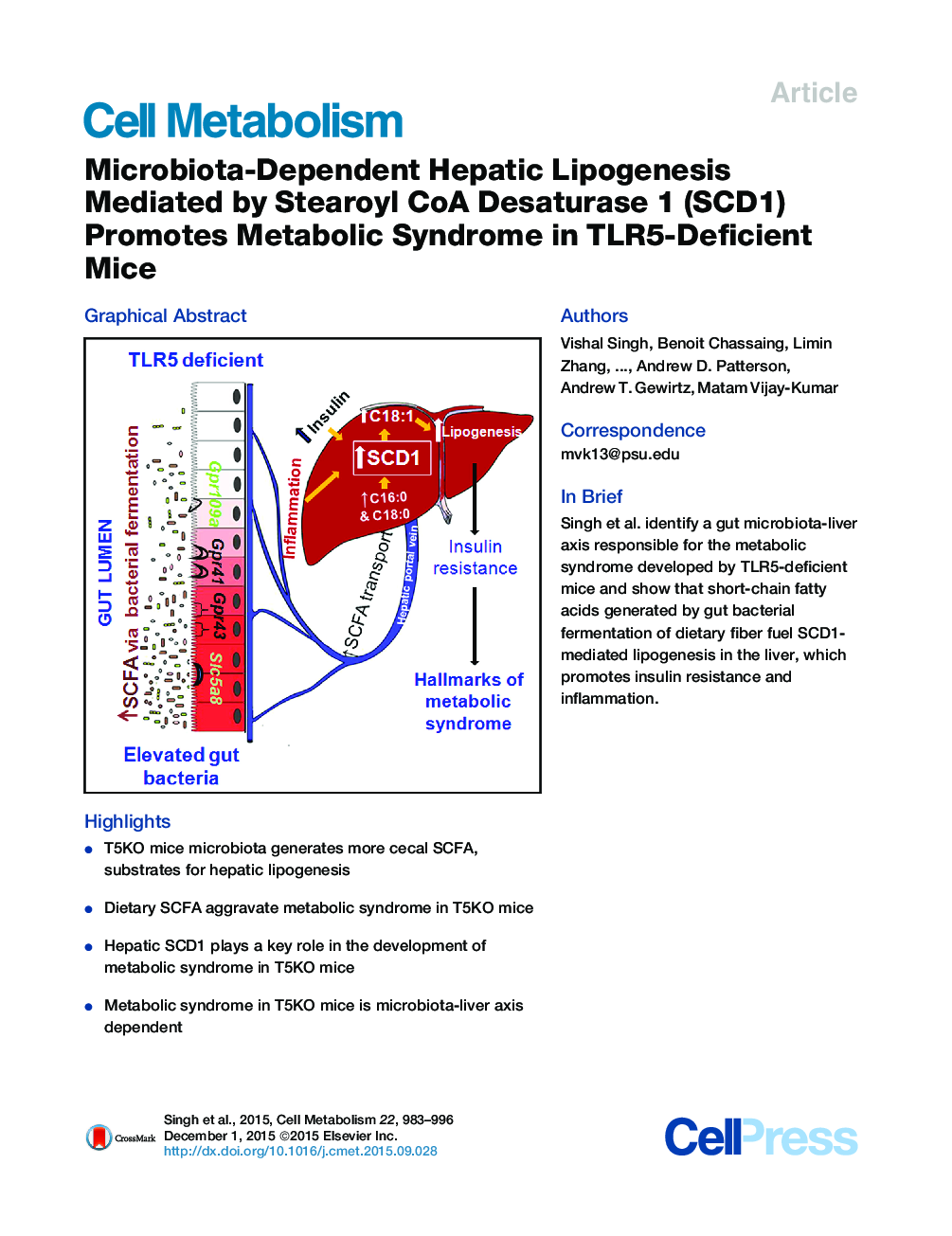| Article ID | Journal | Published Year | Pages | File Type |
|---|---|---|---|---|
| 2792507 | Cell Metabolism | 2015 | 14 Pages |
•T5KO mice microbiota generates more cecal SCFA, substrates for hepatic lipogenesis•Dietary SCFA aggravate metabolic syndrome in T5KO mice•Hepatic SCD1 plays a key role in the development of metabolic syndrome in T5KO mice•Metabolic syndrome in T5KO mice is microbiota-liver axis dependent
SummaryThe gut microbiota plays a key role in host metabolism. Toll-like receptor 5 (TLR5), a flagellin receptor, is required for gut microbiota homeostasis. Accordingly, TLR5-deficient (T5KO) mice are prone to develop microbiota-dependent metabolic syndrome. Here we observed that T5KO mice display elevated neutral lipids with a compositional increase of oleate [C18:1 (n9)] relative to wild-type littermates. Increased oleate contribution to hepatic lipids and liver SCD1 expression were both microbiota dependent. Analysis of short-chain fatty acids (SCFAs) and 13C-acetate label incorporation revealed elevated SCFA in ceca and hepatic portal blood and increased liver de novo lipogenesis in T5KO mice. Dietary SCFAs further aggravated metabolic syndrome in T5KO mice. Deletion of hepatic SCD1 not only prevented hepatic neutral lipid oleate enrichment but also ameliorated metabolic syndrome in T5KO mice. Collectively, these results underscore the key role of the gut microbiota-liver axis in the pathogenesis of metabolic diseases.
Graphical AbstractFigure optionsDownload full-size imageDownload high-quality image (258 K)Download as PowerPoint slide
